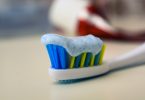Jaw popping, clicking, or grinding? It may be more than an annoyance.
Many of us might hear our jaws click or pop when we eat, chew gum or otherwise use our jaw muscles. And it’s harmless. Most of the time it’s just because that’s how our upper and lower jaws work.
Unless that clicking also comes with pain or tenderness in the jaw, temples or neck. If that’s the case, sounds like you might have a TMJ disorder, or TMD.
Got stress? Don’t be surprised if you also have TMD
TMJ is short for the temporomandibular joint, which connects your jaw to your skull.
TMD, on the other hand, describes any problem with the bones, cartilage, muscles and ligaments surrounding that important joint and can impact up to 1 in 8 of us. While TMD can happen most any time during our life from our teenage years to old age, it does tend to be more common in women. Anyone with chronic pain conditions like fibromyalgia is also at higher risk, and a jaw injury can also lead to the disorder.
For older folks, TMD is likely related to arthritis. For those who are younger, a genetic predisposition, anatomic design of the TMJ, lifestyle and chewing habits are common culprits. But so is stress, which is something we all deal with on an increasing basis.
“Anxiety makes people have stressful habits, like clenching their teeth while working on their computer, driving with their jaws shut tight or grinding their teeth at night while sleeping,” said Dr. Bhavik Desai, a specialist in oral medicine at the Dental College of Georgia.
All of that pressure isn’t great for the teeth, but it can also lead to chronic TMD.
Good posture: Not just for your back
“Just as good body posture is important, so is good jaw posture,” said Desai.
Proper jaw posture involves sitting with lips sealed and teeth slightly apart, said Desai. So if you’re a grinder or a clencher, be aware of it and do your best to stop, then relax your mouth.
Anyone with minor pain and clicking that could be related to TMD can talk to their dentist at their next checkup about good jaw posture. A dentist can also advise easy lifestyle changes to help, including simple exercises, pain relief and avoiding chewing gum or chewy foods like steak. “For some, even pizza or bagels can be triggers,” said Desai.
Even if you feel like you can live with the pain, you don’t want TMD to go unchecked. If it becomes more severe, the pain will grow worse and you could even begin to have problems opening your mouth. So if simple measures aren’t solving the issue, ask to see an oral medication provider or oral facial pain provider.
These specialists can provide more detailed counseling to help you break the lifestyle habits that could be leading to pain. They can also recommend other therapies for TMD, such as oral appliances that you wear inside your mouth to protect your teeth and jaw, medications, physical therapy exercises and trigger point injections.
The goal is conservative therapy and also prevention. Your jaw might still click, but good management will ensure there’s no pain involved.
“TMD can be reversible,” said Desai. “At the same time, it’s just like any joint issue. It’s about management. So if you know you are prone to TMD, baby your jaw. If you know you have knee problems, you don’t run a marathon. It’s the same thing with your jaw joint.”





